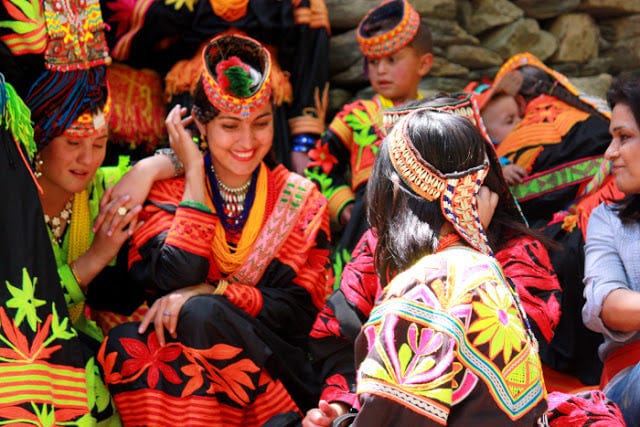News Desk
The Khyber Pakhtunkhwa (KP) Law Ministry has approved the draft of Pakistan’s first-ever Kalash Marriage Bill, setting the stage for its presentation to the provincial cabinet and, subsequently, the KP Assembly. The proposed legislation aims to formally recognize and protect the unique marital traditions of the Kalash community in Chitral, which have previously operated outside the country’s legal framework.
According to Wazir Zada, a Kalash representative and former KP Assembly member, the bill has successfully passed the provincial law department’s vetting process. In a press statement he described the draft as a historic step towards safeguarding the cultural and legal rights of the Kalash people.
The Kalash community, estimated to number around 5,000, currently resolves marriage, divorce, and inheritance disputes through traditional Jirgas, as no personal law exists to govern these matters. In 2020, the provincial government announced its intention to draft a marriage law for the Kalash, with a preliminary version prepared in 2022 following consultations with community members.
While the National Database and Registration Authority (NADRA) issues marriage certificates based on documents from tribal councils, there is no legal mechanism to validate or regulate these unions. The Kalash Marriage Bill seeks to fill this gap by formally codifying marital customs under Pakistani law.
Three Types of Recognized Marriages:
The bill identifies and recognizes three distinct forms of Kalash marriage:
Arranged Marriage: A union involving familial consent and traditional rituals such as Khaltabari and Marrat.
Love Marriage (Alashing Marriage): Where a woman chooses her partner without parental consent. The marriage becomes valid if her willingness is confirmed by relatives within seven days.
Elopement (Shisha-Istongas): Couples who elope and complete the Marrat ceremony will be considered legally married under customary law.
Legal Age and Registration:
The proposed legislation sets the minimum marriage age at 18 for both men and women, in accordance with national and international child protection standards. It also outlines a formal marriage registration process. Registrars—appointed from within the Kalash community—must be literate, at least 25 years old, and well-versed in Kalash customs.
Each marriage will be recorded in an official register with four copies retained by the couple, registrar, and respective village or neighbourhood council. These records will be publicly accessible and legally admissible in administrative or judicial proceedings.
Divorce and Alimony Provisions:
The bill also codifies traditional Kalash divorce practices:
Ja Hutik: Divorce initiated by the husband. The wife retains dowry and gifts, with no compensation owed to the husband.
Ja Parik: Divorce initiated by the wife. Her family must return marriage expenses, and any future husband must pay double the original marriage cost to the former husband’s family.
Grounds for court-approved divorces include cruelty, abandonment, religious conversion, mental illness, or prolonged neglect. Divorce certificates will be issued by local councils.
Penalties for Violations:
Violations of the proposed law—including underage marriages and unions within prohibited blood relations—carry penalties of three to six months’ imprisonment and/or fines up to Rs. 50,000. Failing to register a marriage or providing false information may result in up to six months’ jail or fines ranging from Rs. 1,000 to Rs. 100,000. All offences are non-cognizable and non-compoundable, requiring a written complaint and trial by a Magistrate First Class.
The Kalash Marriage Bill 2024 represents a landmark legislative initiative, offering legal protection to an indigenous community while preserving its cultural identity. If passed, it could serve as a model for integrating the personal laws of other minority groups into Pakistan’s legal system.


